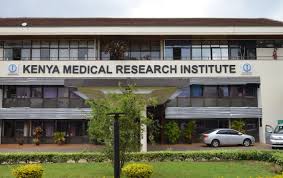The Kenya Medical Research Institute (KEMRI) has raised concern over the country’s high number of preventable newborn deaths, warning that thousands of infants continue to die each year from causes that could be addressed through timely medical care.
KEMRI Director General Prof Elijah Songok told delegates at the 12th Devolution Conference in Homa Bay County that more than 3,000 infants die annually, with research showing most of these deaths are avoidable.
“Intrauterine hypoxia has been identified as the leading cause, while 64 per cent of stillbirths are preventable,” said the KEMRI boss, citing findings from the Child Health and Mortality Prevention Surveillance (CHAMPS) study in Western Kenya.
Other major contributors include untreated maternal infections such as syphilis and malaria, as well as hypertension and anaemia during pregnancy — all conditions that are manageable with proper care.
A sub-study in Kisumu and Siaya counties revealed that one in three newborn deaths is linked to complicated deliveries, while many preterm infants die from hospital-acquired infections due to weak neonatal protocols.
KEMRI’s review of 80 studies also showed that only 54 per cent of expectant mothers complete the recommended four antenatal visits.
Barriers include distance, cost, drug shortages, understaffed facilities, and cultural stigma — particularly against male involvement in antenatal care.
“Behind each statistic is a family forever changed. Our research shows we have the tools and knowledge to save these lives. What we need now is decisive, collective action,” Prof Songok emphasized.
To address the crisis, KEMRI has proposed a four-point plan: strengthen primary healthcare, use technology to flag high-risk pregnancies, invest in health workers, and foster partnerships to improve and finance maternal and newborn care.
Prof Songok added that KEMRI will incorporate findings on malaria in pregnancy, preterm care, and prevention of mother-to-child transmission into updated national guidelines, while scaling up innovations aimed at reducing infant mortality.
“This is not KEMRI’s fight alone,” he said. “We must ensure every pregnancy is safe, guarantee skilled birth attendance, and give every newborn the best start in life. A mother’s health is the foundation of a healthy nation — let’s build that foundation together.”

